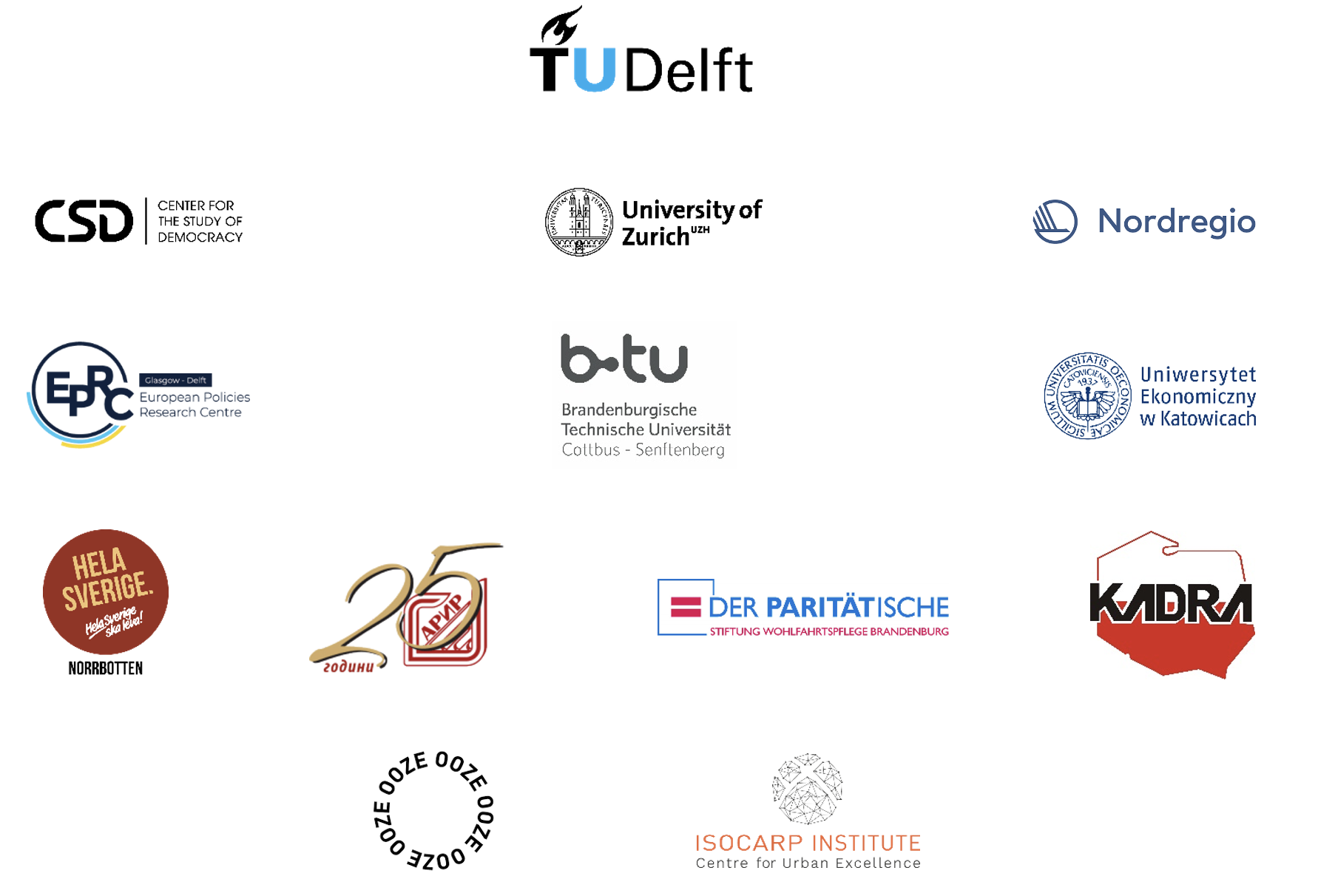 TU Delft and our section of Spatial Planning & Strategy is the lead partner in the Horizon Europe project ‘DUST’ – Democratising jUst Sustainability Transitions.
TU Delft and our section of Spatial Planning & Strategy is the lead partner in the Horizon Europe project ‘DUST’ – Democratising jUst Sustainability Transitions.
In the context of eroding democratic institutions, the European Union (EU) – in collaboration with national, regional, and local governments – seeks to bring its policies closer to citizens, in line with the active subsidiarity principle. Informed by this concept, Institution Name and partners under the lead of TU Delft set up the project Democratising jUst Sustainability Transitions or DUST, in response to the Horizon Europe call ‘The future of democracy and civic participation’. The project was selected for funding by the EU and was launched on 1 February 2023.
DUST will develop and operationalise novel participatory instruments for proactive and strategic citizen engagement in sustainability transitions. It will combine design-led territorial tools with digital tools for citizen deliberation at scale. The project addresses a defining societal and democratic challenge for Europe, which is to hear the voices of least engaged communities, especially in structurally weak regions dependent on energy-intensive industries, which will be most affected by transitions towards a more sustainable future. Building on the concept of ‘active subsidiarity’, the project will employ an innovative mix of research methods, and experimental citizen participation, to understand the determinants of participation in decision-making on sustainability transitions at different levels of government, and to develop effective policy recommendations for inclusive engagement of civil society.
In its assessment of the proposal, the EU has highlighted “the innovation potential that arises from a scalable model, focusing on a wide variety of scenarios and involving civil society in deliberation and co-creation policies”, and DUST’s interdisciplinary approach, which “convincingly integrates knowledge from political sciences, policy sciences, planning, and design”. The DUST experiments, which will – under the header Regional Futures Literacy Labs – test a hybrid format of design-led and digital tools for citizen deliberation at scale, are described as essential work.
DUST receives funding from the European Commission Horizon Europe programme (Grant Agreement ID: 101094869), with a budget of 2.7 million euros. DUST is implemented by a highly competent and enthusiastic consortium comprising 13 partner institutions across Europe and with TU Delft int the lead. The project lasts for three years.
Verena Balz is the principal investigator, while the TU Delft team also comprises Marcin Dąbrowski, Alexander Wandl, Lei Qu, Thomas Verbeek, Rebecca Baugh, Ellen van Bueren (MBE Department) and Trivik Verma (TPM Faculty).
For more information, please contact Verena Balz. Website providing more insights will be published soon.
